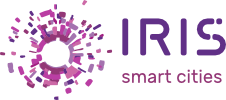
IRIS Smart Cities speaks with Mauritz Knuts of Vaasa Region Development Company and Co-Chair of a European working group on replicating smart city solutions about scaling up and transferring smart city technologies. Further insights and resources available at the end of this interview:
The EU have again accelerated emission targets and ambitions for 2030 and 2050 – can cities scale up sustainable energy and mobility solutions fast enough to meet them?
Yes, it is possible, but it will be an incredibly demanding process and many cities will need guidance, resources and inspiration to make it happen. There is a positive attitude and new optimism behind setting these targets, but when we sit down, and look at what it actually means, and how to get there, that is usually when cities realize that they need some help to achieve them.
The demand for validated solutions, both technically and economically, is enormous, and there is a high level of willingness for implementation for these kind of solutions in the cities. However, there are many obstacles to overcome, as the solutions does not work for every city as they are, but needs tweaking to local circumstances and capabilities.
For the cities to be able to replicate good solutions quickly and at scale, they cannot only have a technical aspect to them, but also a working business model, a way to finance them, and a way to communicate the benefits of the solution to citizens and decision makers.
You are currently co-chair of the replication working group for European Smart Cities projects. How do you collaborate and what value does it create?
Now there are 17 active lighthouse projects with 44 lighthouse cities and 70 fellow cities. In the replication working group we focus on learning from each other and trying to find best practices and share the knowledge amongst each other. We are grateful for the first projects who are now finishing and the knowledge they are sharing with us, as this is valuable information for the younger projects to focus on the right things.
The value created in the group is mostly guiding each other towards the greatest possible impact in the cities that want to work with transforming into a smart city, using the solutions demonstrated in the projects.
And IRIS Smart Cities has just activated its own replication plan – lead by you in Vaasa, Finland to fellow project cities in Spain, Romania and Greece. What are you planning to help scale up solutions in these cities and beyond?
I think the biggest challenge in the fellow cities is in creating the eco-systems needed for replicating the demonstrated smart city solutions. Getting everyone on board from all sectors involved is no easy task. However, if the stakeholders in a city, and citizens, start striving towards common goals regarding smart city transformation actions, then things might accelerate at an unforeseen speed.
If we can unlock one activity like this, then the ground for future initiatives can also be more fertile. We think that IRIS can provide some ‘quick win’ and high impact solutions and we are ready to share them with the consortium and beyond. Indeed, Vehicle 2 grid technology electric vehicles have been taking off in Utrecht and the relationships and knowledge powering this have been taken up in another IRIS city, Nice Cote d’Azur and being examined in other places already. The first in a long line of time and cost saving exchanges that will reduce our urban emissions I hope.
Further insights: Accelerating smart city roll out: blending social & economic factors to boost replication (presentation)
18 Feb 2020

